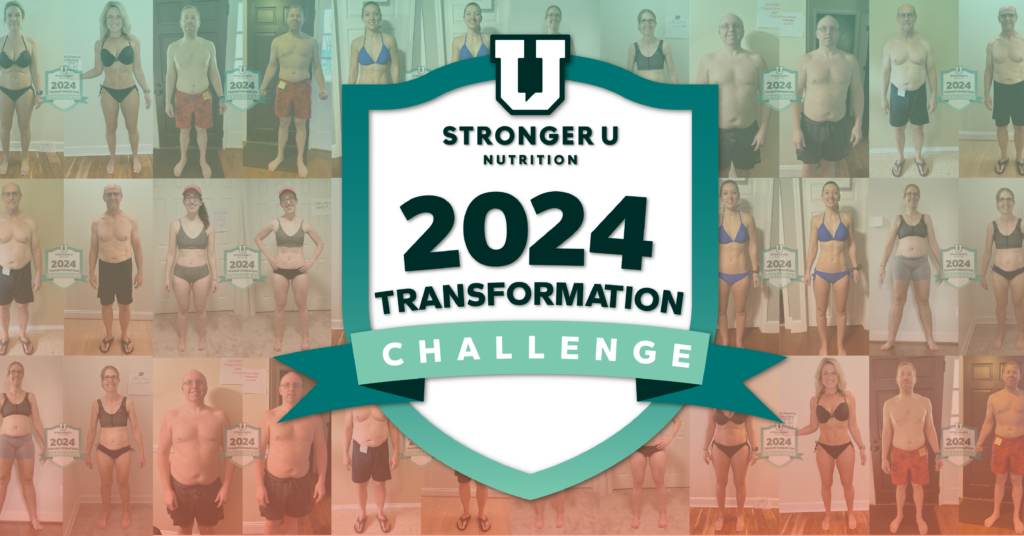I think a lot about the world we currently live in. I think about it more than I probably should, if I’m being honest. I think about it a lot because the world is full of contradictions. All throughout history, many of the great works of literature have focused on contradictions that make up the human condition, just as many philosophers have spent their lives thinking about the same thing. We believe people should act one way, yet we act differently. We say we want to do one thing, and yet find ourselves doing the complete opposite. It’s in these contradictions that we get the phrase “Actions speak louder than words.”
But one of the contradictions I think about all the time is the information age. Specifically, the fact that we live in the most information-rich era of human history. The device you’re reading this blog on gives you access to more information than any of our great grandparents could’ve ever imagined possible. And yet, despite the access to all the information that we have, we still find ourselves falling victim to pesky half-truths and myths.
Nowhere is that truer than in the world of nutrition. Entire books have been written on separating the wheat from the chaff when it comes to nutrition fact. Part of the reason that nutrition myths can remain so prevalent often boils down to that annoying phrase “it depends”.
And yet, despite all of the books, courses, blogs, and education material out there focusing on delivering sound and evidence-based nutrition advice, some nutrition myths find a way to stick around. One of those? A little myth known as starvation mode.
Now, for those just now tuning in or learning about starvation mode, it tends to go something like this:
Person A wants to lose a lot of weight so they crash diet on 900 calories a day for a few months. Early on in their crash diet, the scale is heading down and they’re dropping body fat. At a certain point, that weight loss starts to slow down, and eventually stalls out completely. Or, in especially awful cases, that person who is drastically undereating at 900 calories a day might even start gaining weight back, despite their incredibly low caloric intake.
For quite a while, especially in the fitness and nutrition community, the prevailing wisdom around why this slowing down and stalling out happened came about thanks to a fancy sounding theory called starvation mode. The idea behind starvation mode essentially says that because a human body has evolved over the course of thousands of years to look out for survival above all else, there’s a point where the body recognizes it’s being dieted down to a mortally dangerous point. So it starts flipping switches and pulling levers to keep you from losing more weight in an effort to keep you alive
But is that actually how the body operates?
Let’s go ahead and set the record straight: When someone eats drastically fewer calories than their body needs on a daily basis for an extended period of time that does NOT then influence the body to start holding onto fat in some sort of last-ditch effort to keep someone alive.
Now, that’s not to say that our bodies and brains don’t try to keep us alive, because they certainly do. They just don’t go about it thanks to some unknown and invisible force called starvation mode.
The body is undeniably smart and has plenty of tricks and unconscious ways that it can work to keep us alive when we’re getting deeper into a diet. It’s why we start to crave more calorically dense foods and it’s why hunger shows up more regularly. Those are signals that are being sent from the body and the brain to influence us to eat more. Because, from an evolutionary perspective, eating fewer calories than you need to survive for an extended period of time is a fast track to not being around for too much longer.
But just because the body has all kinds of ways to influence us to eat more when we’re on a diet does not mean that starvation mode is a thing. In fact, this has been studied.
There’s a famous study known as the Minnesota Starvation Experiment. The Minnesota Starvation Experiment has been written about extensively across the Internet and various publications for decades now, so I won’t rehash everything. But some important points uncovered in the study are worth mentioning:
- 36 men were put on a “starvation” diet over the course of 24 weeks. Those individuals started out eating 1,560 calories per day, and over the course of the 24 weeks, their caloric intake was lowered to ensure that weight loss kept happening.
- Along with their calorie deficit, these men were expected to walk or run 22 miles every week.
- In the end, this meant that most of these individuals were placed in a calorie deficit that equated to about a 50% drop in total caloric needs on a daily basis.
For perspective, that’s about double the most extreme calorie deficit that someone will eat at in a general weight loss plan. So what happened to the participants? Well, I think the picture tells the whole story:
These guys hardly look like people whose bodies are holding onto fat or gaining weight thanks to some evolutionary trick to keep them alive, right? That’s because that’s not how starvation works. At the end of the day, if we’re eating far fewer calories than we need on a daily basis, weight loss will eventually happen. And if the deficit is great enough, not only will that weight loss happen in the form of fat loss, but it will happen in the form of losing lean body mass, like muscle tissue, as well. More to that point: If starvation mode were an actual thing, we wouldn’t lose roughly 9 million people every year due to hunger, according to the Food and Agricultural Organization of the United Nations.
Okay, so if starvation mode isn’t what’s slowing or stalling weight loss, then what is it?
Good question! Remember how we said that this is a difficult question to answer because there is some nuance to what’s going on? Starvation mode might not be a thing, but metabolic adaptation most certainly is.
As we start to lose weight, our bodies get smaller. As our bodies get smaller they require fewer calories on a daily basis, and as we get smaller and need fewer calories, our metabolism then starts to down regulate. We’re not burning as many calories each and every day simply because we don’t need to burn as many as we did when we had a larger body. This is a totally normal and accepted fact of life when it comes to dieting. The amount of food that someone could eat when they were 240lbs is just much different than the amount that they need to sustain their new size if they diet down to 180lbs. Sure, body composition and activity levels will play a role in metabolic rate and how many calories someone should eat on a daily basis. For example: as we talk about on the blog here and here, our activity level tends to decrease as we diet, which means we’re not only consuming fewer calories, but we’re also burning fewer calories on a daily basis. But ultimately, those things play second fiddle to someone’s size and weight when it comes to daily calorie requirements.
It’s in this adaptation that we start to find where starvation mode first came about.
Anyone who has ever attempted serious weight loss can attest to the fact that it’s not always easy. It tests our patience, our discipline, our will power, and it can also be a mentally exhausting thing. Especially when we hit a plateau and weight loss stalls.
You know that moment I’m talking about. When we’ve been dieting for weeks on end and seeing steady weight loss, then all of the sudden things start to slow down or stop completely. All the while, we’re doing everything we can. We’re hitting our numbers as consistently as we can. We’re prepping our meals and we’re sticking to the plan. Yet still, the scale refuses to budge.
At that point, it’s easy for us to chalk it up to some unknown evolutionary force that is hellbent on keeping us alive. After all, that’s a much easier explanation than coming to grips with the fact that we might just have to eat even less food than we are right now if we want to keep on losing weight.
This is where having a coach can become valuable.
When you’ve hit the point that weight loss slows down or stalls, having a coach to bounce your thoughts and ideas off of can be incredibly helpful. Making the decision to keep on dieting isn’t a small decision that should be taken lightly, especially if you’ve already been dieting for months on end. Dieting in itself is a stressful process on the body. It asks a lot of us from both a mental and a physical standpoint, and the further along we go, the more difficult it tends to be on us.
A coach can be a sounding board that helps you troubleshoot what might be going on. For example, maybe the reason our weight loss has slowed down is due to the fact that we’re actually eating more food than we even know, which happens to all of us, including Registered Dietitians. Maybe a coach can help us decide that something like a diet break might be useful for us right now. Or they can help us decide that maybe we’ve been living so long in diet mode, playing into that metabolic adaptation, that taking some time to live in lifestyle mode might be a helpful thing for us from a mental and metabolic health perspective.
All of this isn’t to say that you need a coach to tell you that you’re not actually in starvation mode. After all, I would hope that if you’ve made it this far that you soundly understand starvation mode doesn’t exist. But it is to say that weight loss and nutrition are highly nuanced and complicated topics, as we often talk about, and are topics that are rife with misinformation and half-truths. If we’re not careful, falling victim to those half-truths and pieces of misinformation can not only delay and hinder our weight loss efforts, they can cause us to spend far more time than necessary trying to accomplish our ultimate goal.









